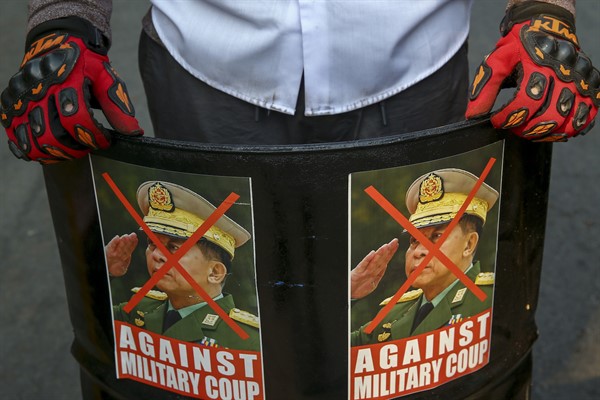Sanctions are in the air everywhere these days. Just this week, there was a ratcheting up of sanctions, travel bans and asset freezes against the military juntas in Myanmar and Mali, almost certainly to be followed by sanctions against military leaders in Burkina Faso, who overthrew that country’s democratically elected government last week. Meanwhile, the U.S. Congress moved one step closer to passing a raft of new sanctions on the Sudanese military for its October coup. Then, of course, there are the very serious threats by the U.S. and its NATO allies to impose wider sanctions against Russian President Vladimir Putin or on the Russian economy if Russia invades Ukraine.
There are two notable features of this slew of sanctions. First, none of them involve the United Nations. Most were imposed unilaterally by the United States and its Western allies, including the United Kingdom, Canada and the European Union or its individual member states. Regional organizations in Africa—the African Union and the Economic Coordination Organization of West African States—have also been stepping up, suspending the membership of certain coup governments or designating new regional travel bans, asset freezes and other sanctions on select military officials.
There have been efforts to bring each of these crises to the U.N. Security Council for more forceful condemnations, comprehensive arms embargos and sanctions—but to increasingly little effect. Vetoes and blocks at the U.N. are of course not new. But these days, the objections are no longer confined to a few flashpoint countries like Syria. Instead, they seem to encompass any number of crises and regions. As a result, U.N. member states have turned to the only tools that seem to be left: unilateral or regionally coordinated sanctions.

